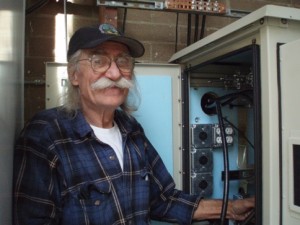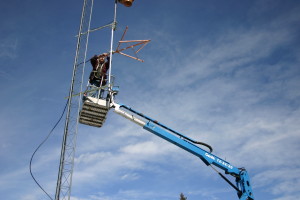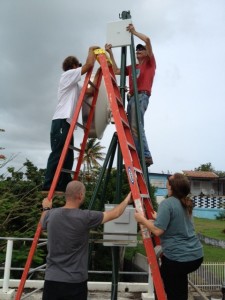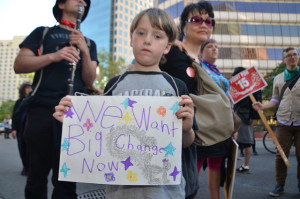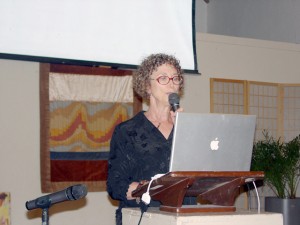 Chief Financial Officer Report to The Pacifica National Board
Chief Financial Officer Report to The Pacifica National Board
December 18, 2014
Transcript
I will start with the updating of the 2013 Financial Statement.
[About the audit] Again, we’re still waiting for …. err, working with the registrations to get the remainder of the other schedules, and the documentation. We are in contact with Armanino. Through recent conversations with them, we found out that the continuation of the Pittfield work will be based on, entirely, the completeness of the documentation to avoid higher cost and a partial payment of this years audit fees. To date, Armanino has billed the Foundation $77,000 of audit and tax preparation fees. Thats versus what was proposed in the original engagement letter of about $50,000 between audit and tax preparation fees, so we are way over that already.
We have made initial payment of about $11,000 against the 2013 fees. There are about $28,000 still unpaid and carried over from 2012 fees. Right now our oustanding balance with them is about $96,000. And in order to continue the bill work we have to commit some kind of payment against that. With our current financial condition, we are actually working to see where we can get the money, the funds to do this. I will report on that later.
That is with the [2013] audit.
The same is true with the plans for the 2014 audit. We had planned — the audit committee a couple of weeks ago had passed a motion to recommend the iED and CFO hire CPAs or accounting professionals to ensure the preparation of these other schedules to meet the March 31st deadline.
We are in process of hiring them, who would be both knowledgable in accounting as well as the Great Plains accounting software to help with the preparation of these schedules and the year-end reconciliation both for the national office and the support for the other radio stations.
It is estimated that those accounting professionals may cost up to $6,000 per month per person. We are anticipating that we probably will need at least two accounting professionals and will be on temporary assignment for at least 2-1/2 months. This will cost the Foundation an estimated $30-40,000 thru March, and since this amount is of deep concern as funds are limited, Margy and I are kind of working with the stations, and unfortunately the stations are also having some financial issues which I will report later in this.
On the status of the CPB, we are still working on achieving 100% compliance with the technical and legal requirements. . .
On the status of the CPB, we are still working on achieving 100% compliance with the technical and legal requirements, and in conjunction with the AFRs we anticipate that by the time we file our reports for the deadline of March 31st we will be in compliance with that, according to our compliance officer.
The pension plans: our 3rd party administrator is still working on the 2012 and 2013 pension catch-up payments that should have been funded by now, but due to some of the legal issues relating to that, our 3rd party administrator is still researching, and they are advising us that it is taking longer as more research is being done. They have requested more information on employees affected by this pension deposit, so we are providing that to them.
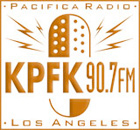 On the tax and finances, since the last two weeks our biggest two radio stations, KPFA and KPFK operations, are both experiencing a cash crunch that’s resulted in the last December 15th, 2014 payroll barely being funded for both stations, and this is, since I got here, has never happened before. As of today, Thursday [December 18, 2014], the cash balance for these stations are very low. The funds are being monitored on a daily basis. We’re kind of in a crisis mode. The National Office management — we are working with KPFA and KPFK management to strategize and prioritize disbursement. These low balances are due to the low pledges from the ongoing December fund drive. The funds for these two stations will be questionable in the next couple of months prior to the next fund drive in early February or late January 2015.
On the tax and finances, since the last two weeks our biggest two radio stations, KPFA and KPFK operations, are both experiencing a cash crunch that’s resulted in the last December 15th, 2014 payroll barely being funded for both stations, and this is, since I got here, has never happened before. As of today, Thursday [December 18, 2014], the cash balance for these stations are very low. The funds are being monitored on a daily basis. We’re kind of in a crisis mode. The National Office management — we are working with KPFA and KPFK management to strategize and prioritize disbursement. These low balances are due to the low pledges from the ongoing December fund drive. The funds for these two stations will be questionable in the next couple of months prior to the next fund drive in early February or late January 2015.
On a station-to-station rundown, KPFA as of yesterday had a $77,000 balance in the bank of which $42,000 is being reserved for the station’s health care bill. This leaves a balance of about $35,000 with the coming payroll for December 31 estimated between $65 to $70,000. In addition, it is estimated that pending and immediate bills are projected to be $86,000.
Now, the tough situation in the entire network demonstrates a need for more drastic actions.
Their December fund drive was based on about 60 percent of goals. KPFA only paid 50 percent of the November Central Services, and has not paid December, either.
KPFK as of yesterday had a balance of only $37,000 in the bank. The coming payroll for KPFK is estimated at $65,000 per pay period. Likewise, KPFK only paid 50 percent of November Central Services, and has not paid December 2014, the monthly fee of $36,000. There is doubt that KPFK may not be able to fully fund their December 31st 2014 payroll. A fundraising concert is scheduled this week to augment the funds at KPFK. However, payroll runs about $130,000 per month, while healthcare bills amount to about $24,000.
KPFK on the other hand remains to be the more stable station amongst Pacifica stations. They are currently current with their health care billbacks and central services.
WBAI remains to be in a tough cash situation. As of yesterday, their balance was only $18,000, where as payroll for December 31st is estimated at $22,000. The station has not paid November and December health care costs as well as Central Services. WBAI still owes two months of health care bills from fiscal year 2014. Their monthly health care bills are about $9,000. So it’s going to be difficult for WBAI to even pay the health care bills for December.
WPFW has a balance of $63,000 as of yesterday. Payroll is about $22,000 per pay period. We believe that WPFW will be able to sustain their operations through their next fund drive. However, the situation will be tight towards the back.
Now, the tough situation in the entire network demonstrates a need for more drastic actions. The National Office relies heavily on the success of each radio stations to sustain its operation. The National Office is also faced with the challenges of paying prior years’ financial obligation. Its efforts to cut costs in the National Office resulted in its ability to pay these past two bills through proper management of available funds and proper scheduling of these payments.
The management team of Pacifica, that includes the Executive Director, CFO, the general managers, program, technical and operational managers are deeply concerned with the condition of Pacifica and they are working together to come up with a solution on a national level, rather than from their individual stations. They are already aware of the respective stations’ financial issues, and are making efforts to rectify their stations’ deficiencies. However, as a group they believe that the PNB should take more drastic actions that only PNB is able to execute and implement.
Transcript by Mitchel Cohen:
Please note that some footnoting is needed. For instance, a “pay period” is used in some places, while what is owed in payroll for the month is also used. This might lead to confusion. A “pay period” is every two weeks. And, of course, while we have a static picture as of Thursday projecting expenses into the near future, funds continue to come in to be applied to the upcoming pay periods. And I am not familiar with some of the terms, such as “registrations”, etc.
I have also isolated the questions and discussion from directors of the PNB regarding the CFOs report, and removed around 14 minutes of procedural motions, votes and chatter. You can hear it here:
Audio Player
Mitchel



